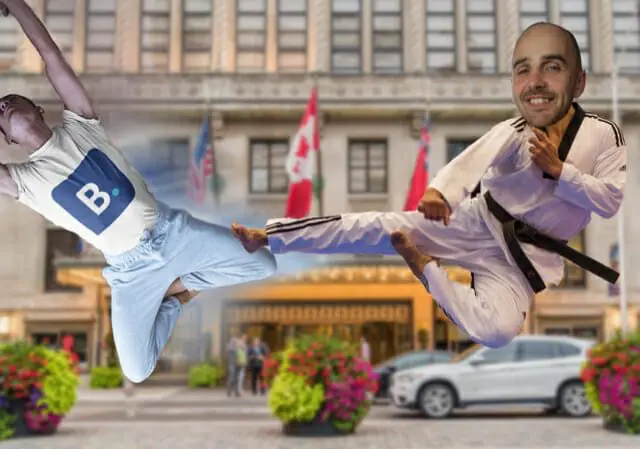On the 27th of October 2017, the CMA opened an investigation into how Online Travel Agents conduct their business.
Update: February 2019 – The CMA has called out the OTAS that have been using this tactic and have until the 1st of September 2019 to stop. A major breakthrough that I have covered here
Recap from October 2017, BBC news:
“The investigation will examine areas such as hidden charges, search results, and discount claims.”
The Competition and Markets Authority (CMA) has appealed to consumers to write to them to detail their experiences about booking on websites such as Hotels.com, Booking.com, Expedia and Agoda.
This was pulled from the government's website:
“The watchdog is seeking evidence from both the websites and hotels and would also like consumers to get in touch with it and share their experiences.”
CMA chief executive Andrea Coscelli said: “Around 70% of people who shopped around for hotels last year used these sites. They should all be confident they have chosen the best accommodation for their needs and are getting a good deal.”
 Nisha Arora, a senior director at the CMA, added: “We are concerned about the clarity and accuracy of these sites. Rather than helping consumers they may be making it more difficult for them.”
Nisha Arora, a senior director at the CMA, added: “We are concerned about the clarity and accuracy of these sites. Rather than helping consumers they may be making it more difficult for them.”
The investigation will cover the following:
- Search results are how vacation rental websites are ranked after a customer has entered their search requirements. For example, to what extent do other factors influence search results that may be less relevant to the customer’s needs, such as the amount of commission a hotel pays the site?
- Pressure selling: whether claims about how many people are looking at the same room, how many places may be left, or how long a price is available to create a false impression of room availability or rush customers into making a booking decision.
- Discount claims USD as marketing strategies on sites offer a fair comparison for customers. The application could be based on a higher price that was only available for a brief period. Or not relevant to the customer’s search criteria. For example, comparing a higher weekend room rate with the weekday rate the customer searched for.
* Hidden charges are the extent to which sites include all costs in the price they first show customers. Or whether people are later faced with unexpected fees, such as taxes or booking fees.
At this time, the big one for me is the “pressure selling”. How many times have you visited Booking.com only for them to tell you that there is “one room left at the property X”, when you know that this isn't the case?
Where are we right now?
July 2018
The Guardian went with a big story.
“They could force hotel booking websites to stop claiming ‘one room is left at this price' and giving more promotion to hotels that pay the most commission, the UK’s competition regulator has said.”
It's not just Booking Holdings (Booking.com's group name) or Expedia Group that have come under fire; Airbnb has been challenged as well. (It's important to note that Airbnb has been challenged not by the CMA, but by the EU.)

Back in October, I said that time would tell if the CMA did anything about the investigation. Or if it was all just smoke and mirrors. I'm happy to see that they are acting and putting in deadlines to these big corporations.
Now is the perfect time for small, independently owned hospitality businesses to take advantage of the fact that the greedy third party bookings websites are being shamed in public. It's time to push the benefits of booking direct if you are not doing so in every social media post, email, or conversation with your guests. If you don't use the direct booking strategies I layout in this blog, then you are leaving money on the table.
If you need help and guidance on how to do this, email me at [email protected].


